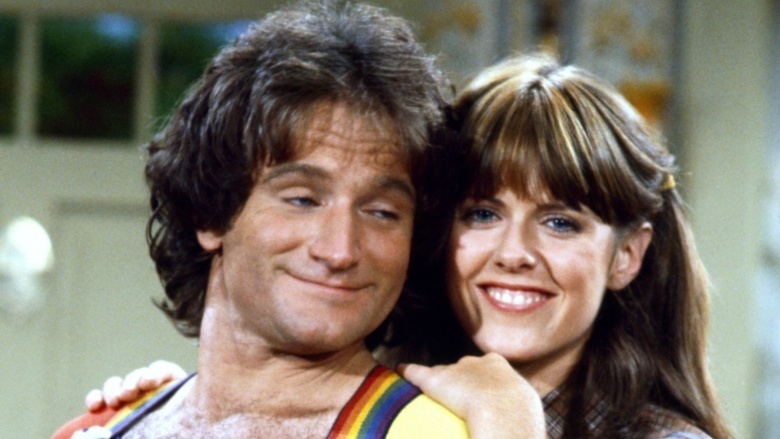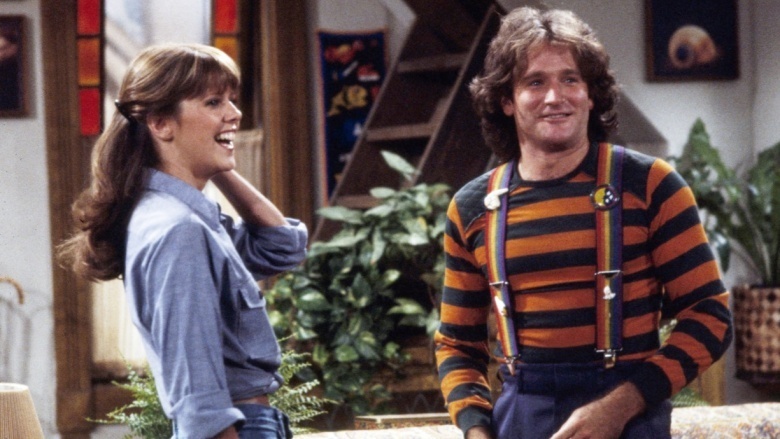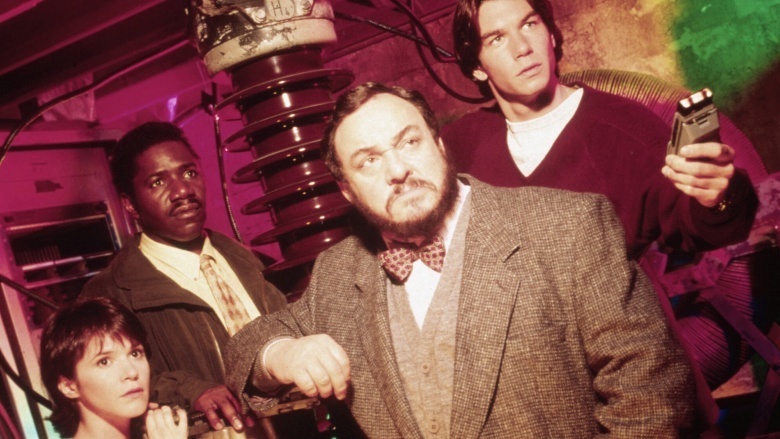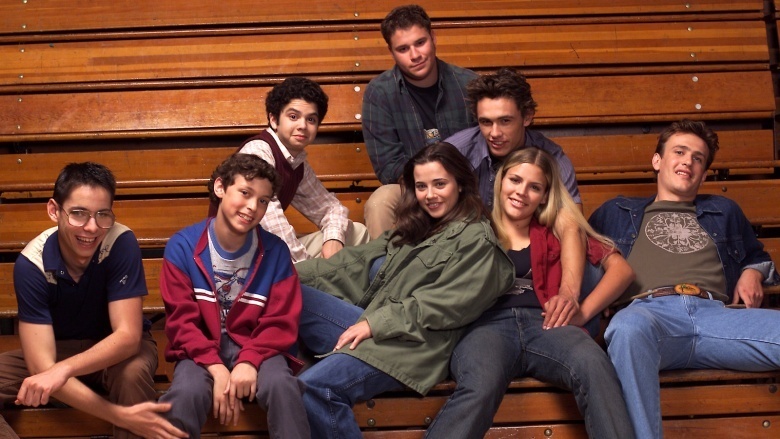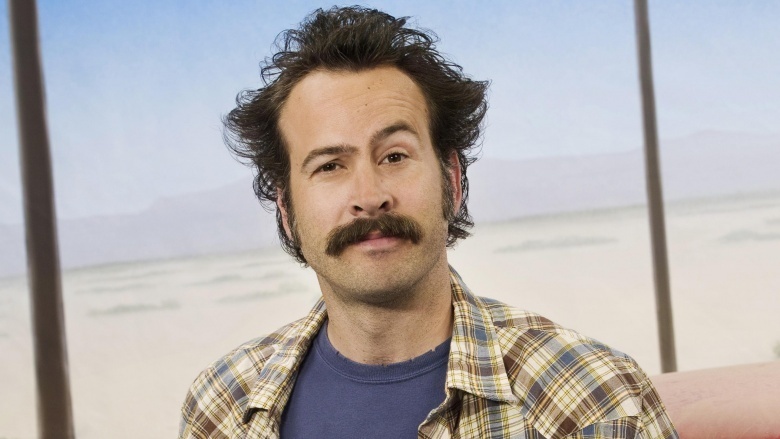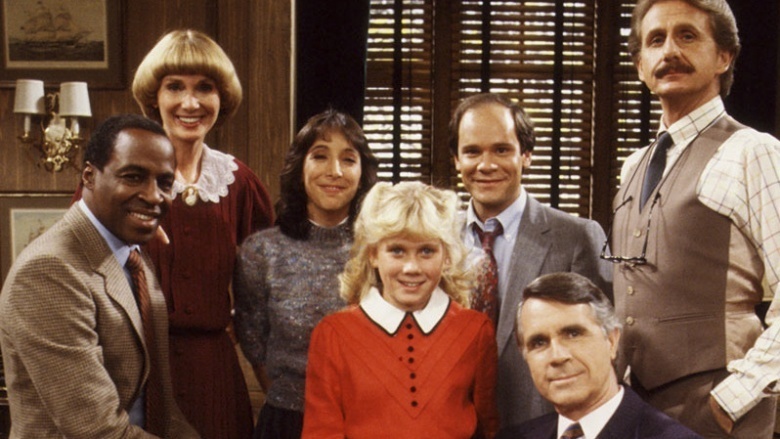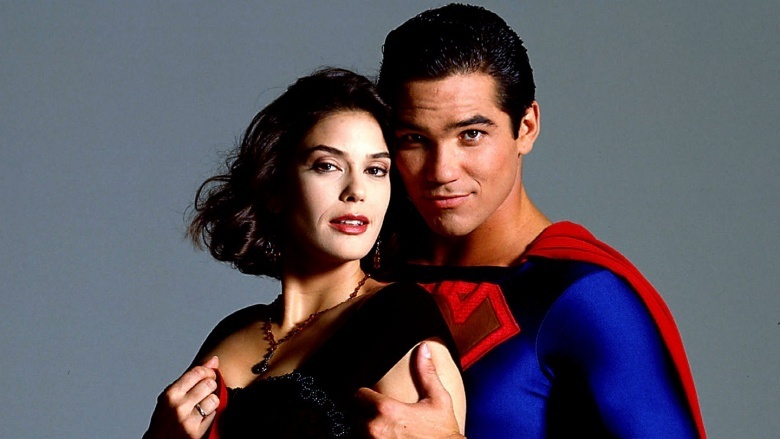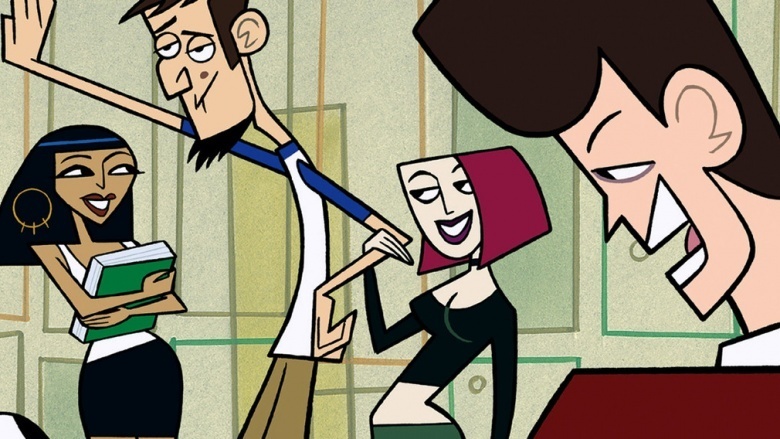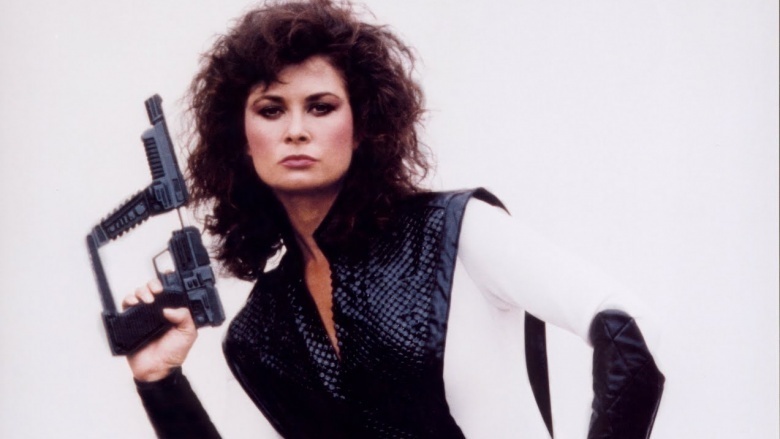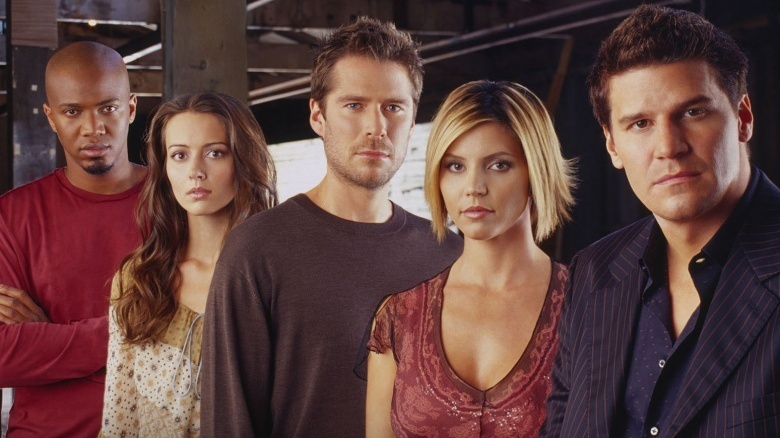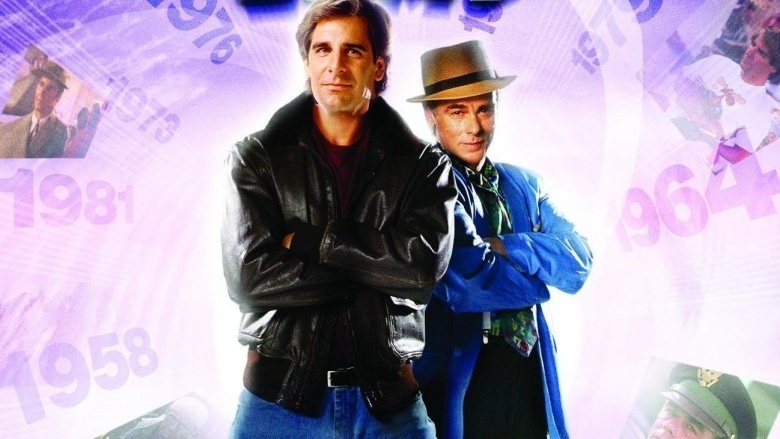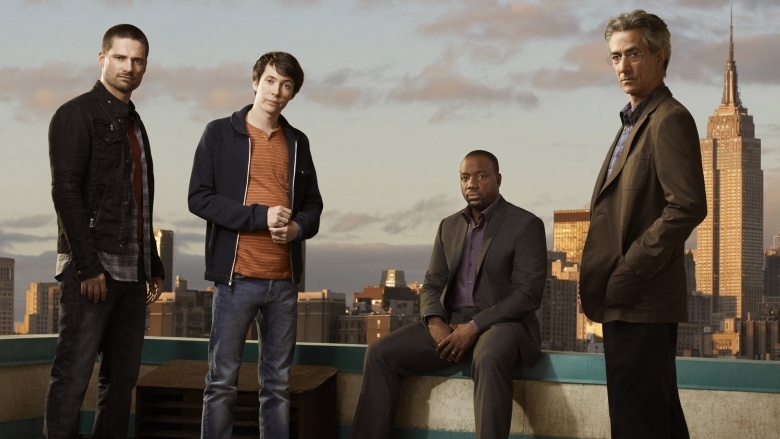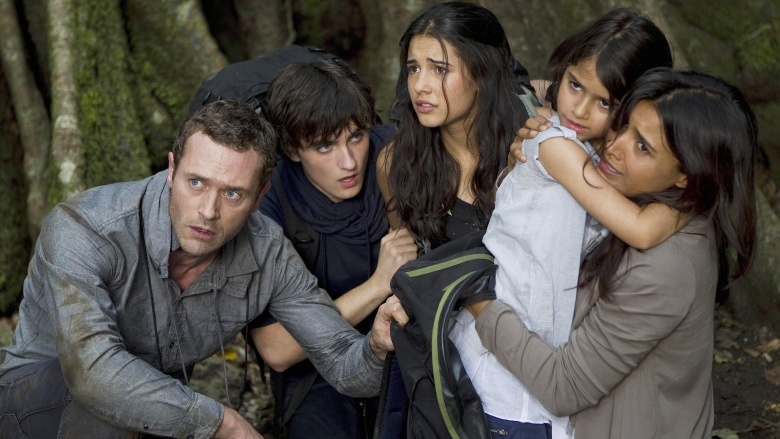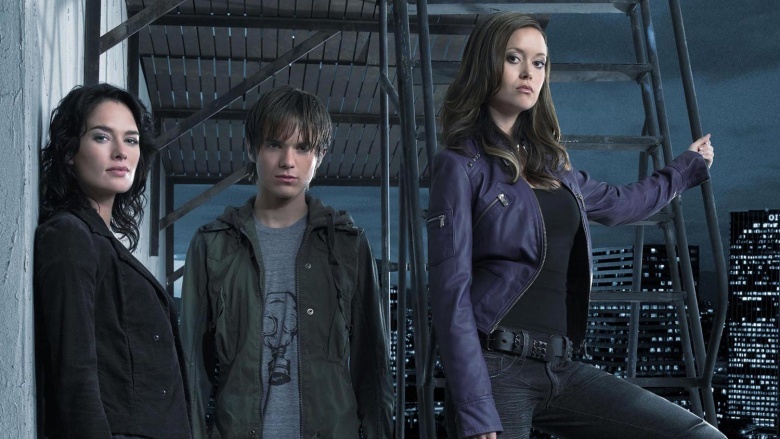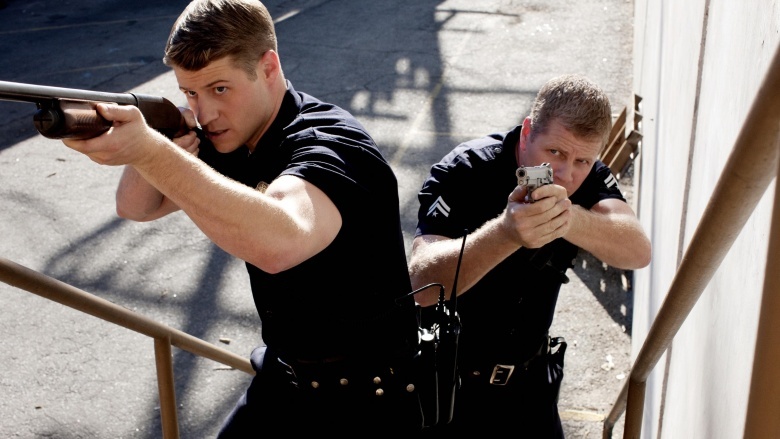Most Frustrating Cliffhangers In Canceled TV Shows
Ever feel frustrated when a show wraps up its season before the long winter hiatus and leaves things unresolved? Hey, it's just a season finale. You'll get closure when that show returns in the fall. But then there are some long-running TV shows that ended a season on their cliffhanger—and then got cancelled. Here are some shows where audiences never got to find out what happened.
Mork and Mindy (1978-1982)
A truly weird sitcom elevated by the staggering comic gifts of Robin Williams, this show's four-season run came to an end in fitting fashion. An evil alien named Kelnik tries to kill Mork, and in doing so blows up Mindy's house, then tells the media that Mork is an alien. Mork and Mindy escape the authorities by using a pair of magical time-travelling shoes. But oops! They're damaged, and they go too far back in time. The last words spoken are Mork saying, "whatever happens we'll have each other." The last image: a cave painting of Mork and Mindy. Did they ever get back to the future? We'll never know, because the show got cancelled.
Sliders (1995-2000)
Maybe the dimension-hopping characters on Sliders can find out what happened by popping over to another dimension where Sliders wasn't abruptly cancelled. But on the final installment of the show that aired in this dimension, a psychic tells the Sliders that if they slide through space and time just once more, they'll die. However, they find a loophole: if one of them slides but also injects themselves with a special tonic, they'll be okay. The character Rembrandt does it and slides on through. Does he live? Does he die? The psychic could tell the others, but while fighting off the Sliders' enemies, she dies. And so did fans' hopes when the show got axed.
Freaks and Geeks (1999-2000)
A true cult classic, Freaks and Geeks made stars out of cast members like James Franco and Seth Rogen, and creator Paul Feig (Bridesmaids, Ghostbusters) is among the most bankable comedy directors in Hollywood. But when this show aired in 1999, it finished near the bottom of the ratings, and NBC pulled the show before all 18 episodes were broadcast. The final episode popped up in the summer of 2000. One of the season's main plot arcs had followed Lindsay Weir's struggles with whether or not to remain a hard-working, school-first good girl. She ultimately ditches an academic summit to go to a Grateful Dead concert. At the end, Lindsay hops in a van, it drives away...and it's not made clear if Lindsay made it there, or back.
My Name is Earl (2005-2009)
This sitcom followed around an amiable dirtbag named Earl, played by Jason Lee, who wins the lottery and spends his life making amends for all the bad things he'd done, since he was all about restoring karma. Despite being a big hit for NBC, it was abruptly cancelled at the end of its fourth season in 2009. The last scene drops a bombshell: Earl is actually the father of his ex-wife's baby, and she's about to explain! But the episode—and series—ends with a "To Be Continued" graphic. Talk about bad karma, NBC...
Benson (1979-1986)
Benson was a spin-off of Soap, featuring the sarcastic butler character played by Robert Guillaume. By the end of Benson, he'd worked his way up from serving Governor Gatling to running for governor against that very guy. The series ends with Benson and Gatling watching the election returns on TV...and that's it. Multiple endings were taped to account for different winners, but test audiences actually preferred the ambiguous ending, so that's the one the producers went with. Thanks a lot, Benson test audiences.
Lois and Clark: The New Adventures of Superman (1993-1997)
Each decade gets the Superman it deserves. Sad, post-Watergate '70s America got happy-positive Christopher Reeve Superman, Superficial, Melrose Place-loving '90s America got this soapy Superman show starring Dean Cain and Teri Hatcher. The fourth season ended with a baby left on Lois and Clark's doorstep. Was it a son of Krypton like Superman? Was it an actual son of Superman? They probably would've explained it in season 5, but ABC decided a fifth season of a show with declining ratings wasn't worth the investment. Superbummer.
Clone High (2002-2003)
Before they made The Lego Movie and 21 Jump Street, Phil Lord and Chris Miller concocted this silly, sci-fi teen soap parody that aired on MTV in the U.S. and Teletoon in Canada. It takes place at Clone High, a school populated entirely by the teenage clones of historical figures. A shadowy government agency intends to turn them into super-warriors or something...but it's really not important, proven by the way the series ended. The main characters are Abe Lincoln, who's in love with Cleopatra, who's in love with JFK, who wants to get into Joan of Arc's pants, but she's in love with Abe. The series was rumored to be cancelled due to the depiction of Gandhi as a jerky teenager, but the final episode leaves things pretty open-ended: Abe realizes he does love Joan, but then it's too late because all of the clones are cryogenically frozen.
V (1984-1985)
After a wildly successful run as a miniseries, V became a full series in 1984. It concerns the arrival of "Visitors" to Earth, who seem friendly at first—but are actually hinge-jawed monsters bent on the destruction and domination of the Earth. A resistance grows, and in the last episode, Jeff, one of their leaders escapes Earth in a spaceship, not knowing that Diana, the evil queen of the Visitors, has put a bomb on board to destroy humanity's hopes of moving on elsewhere. Ratings for V were nowhere what they were for the V miniseries, and the show wasn't renewed, so it's unclear if and when that bomb ever exploded.
Angel (1999-2004)
Toward the end of the run of this Joss Whedon series, Angel and his gang take on the evil law firm of Wolfram and Hart. The final scene of the fifth season shows the protagonists preparing to storm their enemies. The show's writers and producers didn't intend for this to be the ending, but they received word too late that they weren't getting a renewal, so they had to end the show on a cliffhanger. But creator Joss Whedon is okay with that, satisfied that the open-ended ending suggests that the fight against evil never truly ends. But still, that's definitely a lemons from lemonade point of view. Open-ended is open-ended.
Quantum Leap (1989-1993)
Does Sam ever stop leaping through time and space and other people's bodies and, as the opening narration suggests, make it home? It would not appear so. He just keeps jumping...probably. After it was abruptly cancelled by NBC, producers quickly tossed up some text up at the end of the final episode that says, "Sam never made it home." Viewers can assume Sam went on to continue jumping into various bodies throughout history and somehow being surprised every single time it happened. What's most surprising about that? How lame that ending really is.
Alphas (2011-'12)
Created by X2: X-Men United and Marvel's The Avengers co-writer Zak Penn, Alphas was a SyFy original series about a mysterious neurologist named Dr. Lee Rosen (Oscar nominee David Strathairn) who recruits five "Alphas"— regular people who have superhuman mental powers. Together, the doctor and his team work for the U.S. Department of Defense to stop other suspected Alphas around the world from using their powers for evil. A perfect mixture of a vast mythology and a villain-of-the-week format meant Alphas could've run for years and years...but it was canceled in 2012 after just two short seasons. In the season 2 finale, which would turn out to be the end of the series, one of those bad Alphas, Stanton Parish, targets New York City in what is basically a terror attack. By the end of the episode, New York city has been laid to waste, with everyone in the Big Apple either dead or unconscious. Their fate remains unknown.
In 2013, Alphas' fan-maddening cancellation figured into the B-plot of an episode of The Big Bang Theory. Sci-fi uber-fan Sheldon Cooper (Jim Parsons) can't believe Syfy would cancel a show without providing closure for its fans. "Firefly did a movie to wrap things up," Sheldon whines. "Buffy the Vampire Slayer continued on as a comic book. Heroes gradually lowered the quality season by season until we were grateful it ended." Sheldon eventually finds the Alphas finale writer in the phone book and asks what really happened in New York. Viewers can't hear the writer's breakdown, to which Sheldon replies, "Well, that all stinks. No wonder you got canceled."
Terra Nova (2011)
Poised to be one of the biggest new shows of the 2011-12 TV season, Terra Nova offered a massive science-fiction spectacle. It was about a group of people who abandon the polluted, dystopian Earth of 2149 to serve as "pilgrims" and set up a new colony in a new land—Earth, 85 million years in the past, a setup that made room for cool futuristic technology like time machines and lasers as well as dinosaurs. Terra Nova was first announced by Fox in spring 2010, but didn't the air until more than a year later, because it was such a complicated production—259 different sets were built, and the writing staff was completely replaced, to name two roadblocks. The budget for the two-hour pilot was $14 million, and $4 million for each subsequent episode, easily making it among the most expensive shows in TV history. Despite a huge advertising blitz from Fox emphasizing the involvement of executive producer Steven Spielberg, the first episode drew 7.2 million viewers, and ratings never really improved. Terra Nova maintained a relatively small but loyal audience all the way up to episode 13. In that installment, the time-traveling pilgrims come across a ship dating to the 18th century. Nobody is aware of how it got there...or who might be on board. Were there more visitors from the past (or future, as it were)? Were they friendly? It's not clear, because the episode ended without an explanation—and then Fox canceled the show.
Terminator: The Sarah Connor Chronicles (2008-'09)
While Terminator 2 seemingly had a happy ending, the Skynet vs. humanity battle was far from over. On The Sarah Connor Chronicles (which directly follows Terminator 2, ignoring Terminator 3: Rise of the Machines and Terminator: Salvation), Skynet keeps trying to kill John Connor (Thomas Dekker), humanity's savior and defeater of the robots. John, his mother Sarah Connor (Lena Headey) and a good Terminator named Cameron (Summer Glau) have to jump through time a lot to make sure John doesn't die. On one of those time jumps, which happens in the season 2 finale, the group goes far into the future and finds a world where nobody has ever heard of John Connor, including his own father. That left viewers with a lot of questions—which were never answered, because Fox didn't opt for a third season. (The Terminator franchise, meanwhile, continued on the big screen with its own timelines and plot lines separate from The Sarah Connor Chronicles.)
Southland (2009-'13)
After a brief first season on NBC in 2009, TNT picked up this gritty, critically acclaimed drama about Los Angeles police officers. It ran on the cable channel until its fifth season, which ended on a troubling note: after being kidnapped by junkies in the line of duty, witnessing the death of his partner, and escaping by pretending to be dead in a grave he dug himself, Officer John Cooper (Michael Cudlitz) is deemed unstable and placed on desk duty. But he gets in a fight with a neighbor, and it turns violent. His fellow cops shoot him, not realizing he's a cop, too. It isn't clear whether Cooper lives or dies, and at the time the cliffhanger aired, TNT still hadn't made a decision about a sixth season. TNT ultimately canceled Southland...and fans still don't know what happened to poor Cooper.
